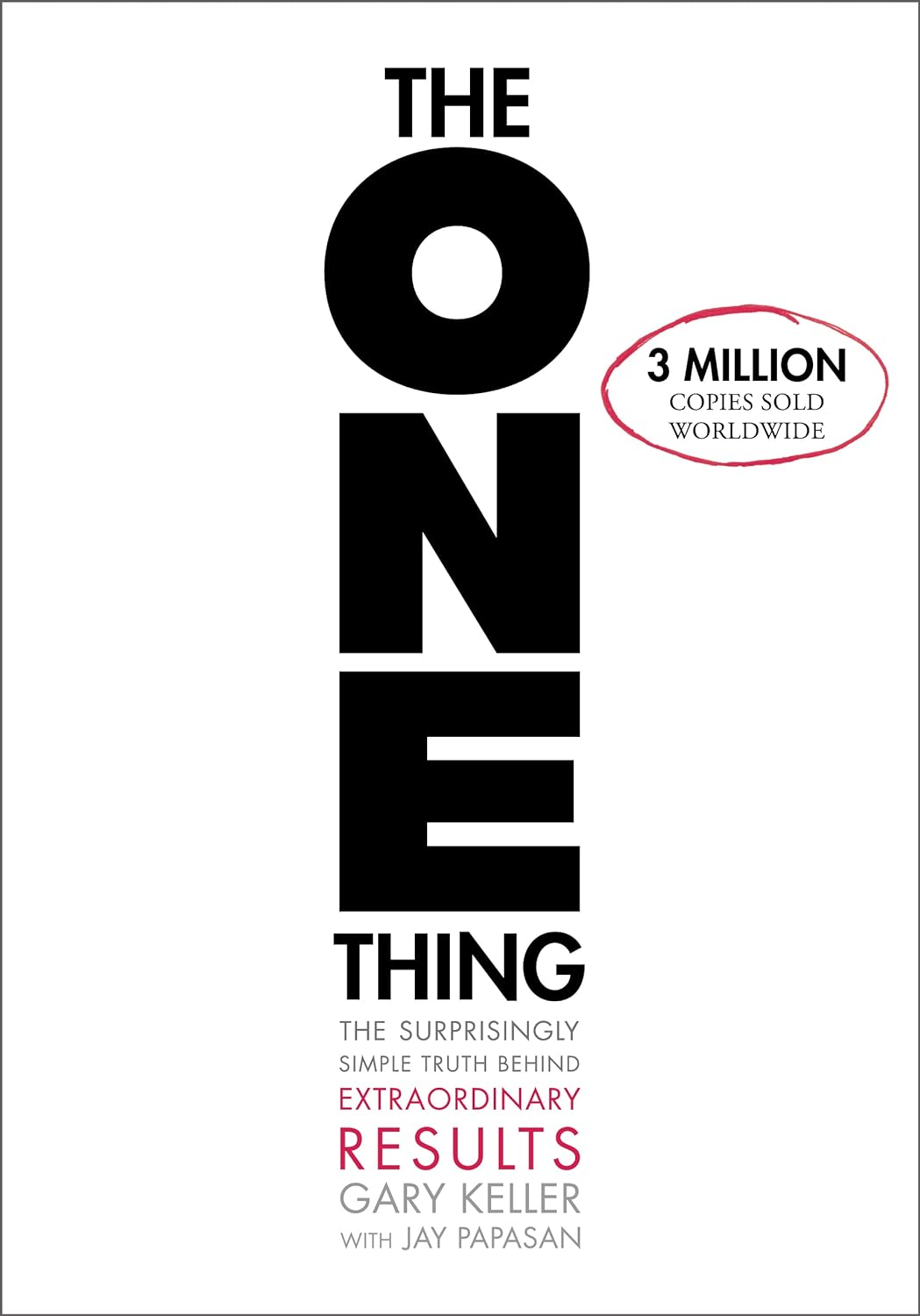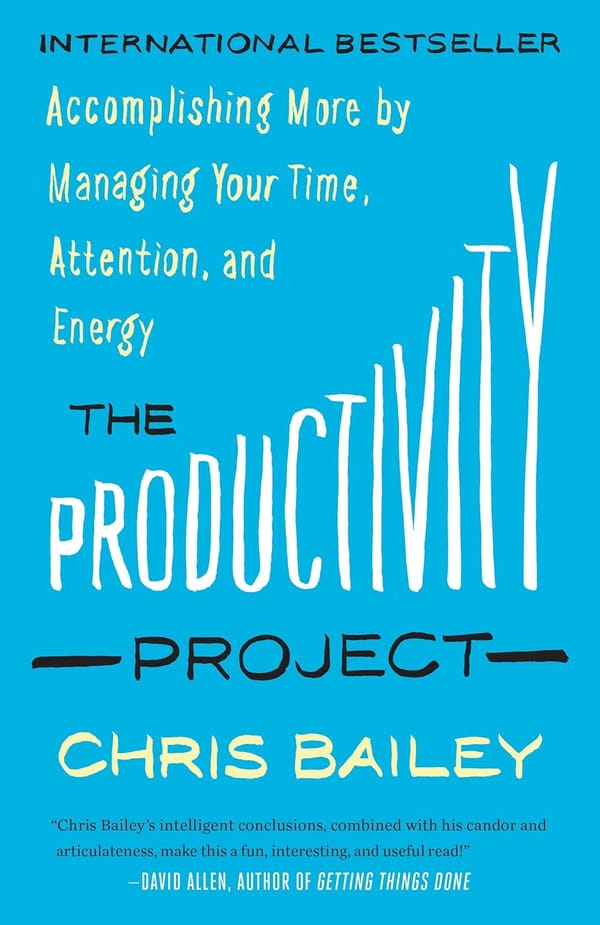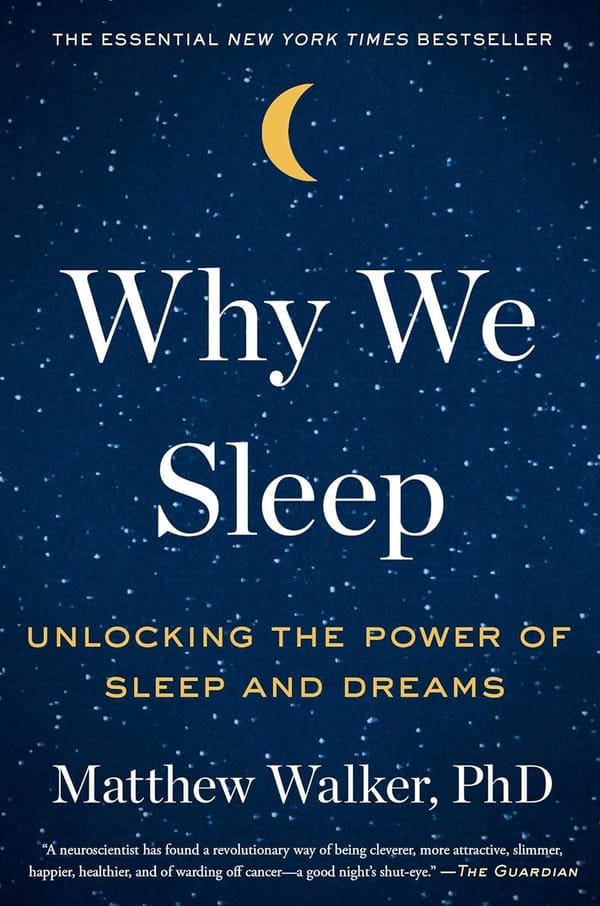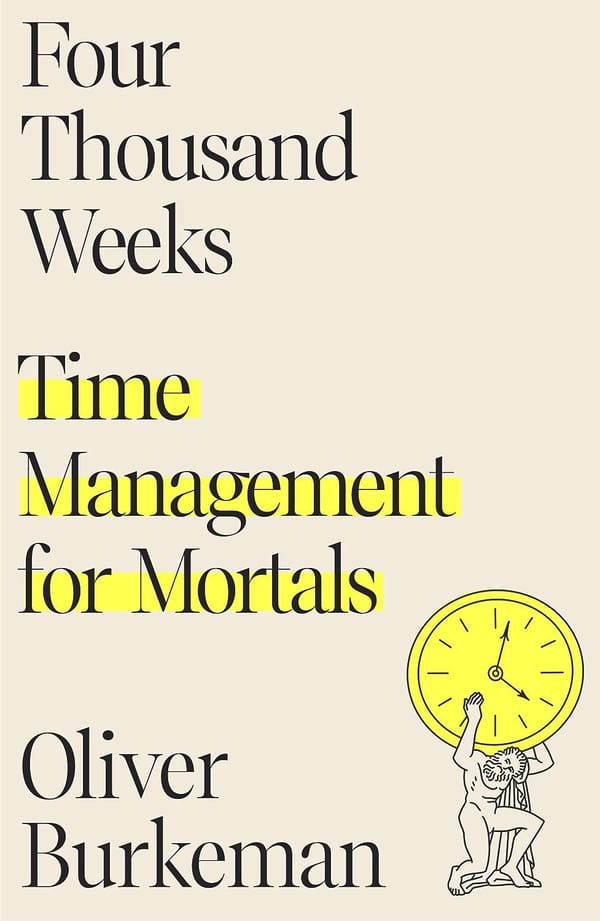The One Thing - Book Notes
If you enjoyed my review, consider supporting me by using the affiliate links below to purchase the book. Your kindness fuels my passion for sharing captivating reads with you!
🚀 The Book in 3 Sentences
- "The One Thing" by Gary Keller and Jay Papasan guides readers to achieve extraordinary results through the power of focus.
- The book emphasizes the transformative impact of narrowing one's focus, employing the 80/20 Principle, and leveraging the Focusing Question to identify pivotal actions.
- With practical strategies like time blocking and insights on overcoming productivity thieves, the authors provide a comprehensive toolkit for individuals seeking success by doing the right things at the right time.
👱 Who Should Read it?
Everyone that tries to do all at once and feels overwhelmed by the many commitments in work and life. Everyone that want to get extraordinary results out of life.
🍀 How the Book Changed Me
After reading the book I started defining my life goals and set linked 5-year and annual goals. It changed my perception of time in regards to focus.
✍️ Top 3 Quotes
- "Extraordinary results are directly determined by how narrow you can make your focus."
- "Success is about doing the right thing, not about doing everything right."
- "A big, specific question leads to a big, specific answer, which is absolutely necessary for achieving a big goal."
🔨 3 Action Points
- Implement the Focusing Question in Daily Decision-Making:
Regularly apply the Focusing Question to guide your actions: "What's the ONE Thing I can do right now, such that by doing it, everything else will be easier or unnecessary?" Tailor this question to specific areas of your life, inserting your focus area and timeframe for immediacy or long-term planning. - Adopt Time Blocking for Priority Tasks:
Embrace time blocking as a strategy for prioritizing tasks. Allocate dedicated blocks of time to focus on your ONE Thing, ensuring protection of these time blocks. Prioritize time off, followed by focusing on the ONE Thing, and conclude with planning time. This sequence ensures a balanced approach to personal and professional success. - Identify and Mitigate Productivity Thieves:
Recognize and actively address the four productivity thieves: the inability to say "no," fear of chaos, poor health habits, and negative influences. Practice assertiveness in saying "no" to tasks that don't align with your priorities. Establish boundaries to minimize chaos, prioritize health habits for sustained energy, and surround yourself with positive influences to foster a supportive environment.
📗 Summary & Notes
I. The Foundation of Extraordinary Results
The Power of Focus: Narrowing Down for Extraordinary Results
Keller and Papasan emphasize the transformative power of focus, presenting it as the cornerstone for achieving extraordinary results. The notion is not merely about working hard but about channeling efforts with precision and depth.
The Domino Effect: Sequential Success, Not Simultaneous
The analogy of the Domino Effect underscores the authors' belief that success is a sequential journey. It's about identifying and strategically tackling one task at a time, each contributing to the next, ultimately leading to a cascade of accomplishments.
Passion and Disproportionate Time: The Practice Principle
The authors explore the symbiotic relationship between passion and practice. Genuine passion, they argue, naturally compels individuals to invest disproportionate time honing their skills in that particular area, fostering a deep sense of mastery.
Priority Over Urgency: Escaping the Busyness Trap
The concept of urgency is dissected, warning against the pitfalls of perpetually busy yet unproductive days. Success, according to Keller and Papasan, requires a shift from the urgency trap to a mindset that prioritizes tasks based on their significance rather than immediacy.
II. Strategies for Productivity and Success
To-Dos and the 80/20 Principle: Choosing the Vital Few
To-dos are scrutinized for their often overwhelming nature. The authors introduce the 80/20 Principle, suggesting that a minority of efforts—those vital few—typically yield the majority of results. This prompts a shift in focus towards the tasks that truly matter.
Multitasking Myth: Focus on One Thing at a Time
The myth of multitasking is debunked, with the authors providing a deeper understanding of cognitive limitations. Multitasking, they argue, not only diminishes the quality of work but also erodes the overall effectiveness of one's efforts.
Success is About the Right Thing, Not Everything Right
The authors advocate for a nuanced understanding of success. It's not about attempting to do everything flawlessly but about discerning the right things to do. They delve into the intricacies of choosing the right habits and maintaining discipline in executing them consistently.
Habits and Discipline: The Shortcut to Success
Delving into the psychology of habit formation, Keller and Papasan elaborate on the energy dynamics involved. Establishing a habit, they argue, requires an initial burst of discipline, but once ingrained, it becomes a powerful force simplifying complex tasks and reducing cognitive load.
Willpower Management: A Finite Resource
The authors provide a comprehensive exploration of willpower, drawing parallels with a cell phone's power bar. They delve into the physiological aspects, discussing the impact of glucose levels on willpower, and present strategies for effective willpower management in the pursuit of extraordinary results.
III. Balancing Act: Short vs. Long-Term Goals
Balance vs. Imbalance: Short vs. Long-Term Goals
Challenging conventional notions of balance, Keller and Papasan dissect the concept, advocating for short-term imbalances in pursuit of long-term success. The discussion delves into the nuanced decision-making required to navigate these imbalances effectively.
Big Thinking: Success in Few Key Areas
The authors delve into the psychology of success, emphasizing the significance of thinking big. Success, they argue, is not derived from attempting to do everything but excelling in a few key areas. They explore the growth mindset and its role in achieving substantial accomplishments.
The Focusing Question: Guiding Decision-Making
Central to the book, the Focusing Question is dissected for its profound impact on decision-making. The authors break down its components, illustrating how it serves as a guiding compass, compelling individuals to identify the critical tasks that significantly influence broader goals.
IV. Structuring Productivity and Accountability
Time Blocking: Structuring Productivity
The authors advocate for time blocking as a strategic approach to productivity. Time, they argue, is a finite resource, and how it's allocated determines the effectiveness of one's efforts. Practical advice on managing distractions and maintaining focus through structured time blocking is provided.
Commitments to the ONE Thing: Mastery, Purpose, and Accountability
The authors introduce three commitments integral to the ONE Thing philosophy. The path of mastery involves dedicating focused time to a task, transitioning from an entrepreneurial to a purposeful mindset, and living the accountability cycle by persevering through setbacks.
Thieves of Productivity: Saying No, Fear, Health, and Attitude
Common impediments to productivity are meticulously examined. Inability to say "no," fear of chaos, poor health habits, and a negative attitude are portrayed as the silent thieves undermining one's ability to maintain focus and drive.
Expanding Limits Through Thinking: Imagination and Purpose
In the concluding notes, Keller and Papasan delve into the transformative power of thinking beyond limits. They encourage readers to lift the constraints of thinking, fostering a mindset that envisions a bigger life. This imaginative perspective is portrayed as a fundamental step toward realizing one's true potential.



